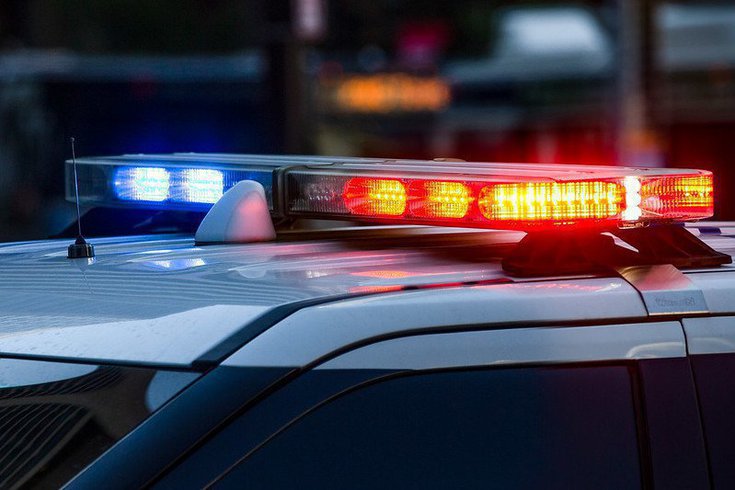
May 07, 2022
 Thom Carroll/for PhillyVoice
Thom Carroll/for PhillyVoice
Laye Sekou Camara, 43, of Mays Landing, has been arrested and charged with using an immigration document obtained through fraud. Authorities allege he lied about his past as a general in a rebel group which committed war crimes.
A Liberian man allegedly hid his past as the leader of a rebel group which used child soldiers to immigrate to the U.S. and settle in the Philadelphia area.
Laye Sekou Camara, 43, of Mays Landing, has been arrested and charged with using an immigration document obtained through fraud, prosecutors announced this week.
Authorities say he was a general in the rebel military group Liberians United for Reconciliation and Democracy. That's one of the organizations which tried to overthrow the West African nation's then-President Charles Taylor during the country's second civil war, which started in 1999. The first civil war started in 1989 and ended in 1997.
Both conflicts were defined by their brutality. There were many war crimes and atrocities committed, including some carried out by Camara's group, prosecutors say. This included the recruitment and use of child soldiers.
A photo of LURD rebels which included Camara was published in the New York Times in 2003, the Courier Post reports. Around that time, a U.S. ambassador also remembers having direct contact with him. He knew the general as "Dragon Master."
By the time the war ended in 2003, Camara was reportedly in hiding after he killed another general from his army.
He applied for a non-immigrant visa to come to the U.S. in June 2011, which he was granted. But Camara allegedly lied to officials when asked if he had been a member of an insurgent organization or participated in any political killings or other violence.
In an application for a green card filed a year later, Camara allegedly lied about having never recruited or used child soldiers.
It was approved, and he used this document, which was allegedly obtained fraudulently, as evidence of his immigration status when he needed to get an ID from PennDOT in 2017.
If convicted, Camara faces up to 10 years in prison and a $250,000 fine.
He's not the only alleged Liberian war criminal with ties to the Philly area.
Large numbers of refugees from the country fled to the region during the second civil war, and some involved with war crimes slipped through the cracks. In 2010, the roughly 8,000 Liberians in Greater Philadelphia constituted the region's largest African immigrant group.
Many have settled in Southwest Philly, which has a thriving West African immigrant community. They picked the neighborhood in part due to the support and acceptance of the neighborhood's existing African American community.
In 2018, an ex-Liberian warlord named Mohammed Jabateh, 54, was sentenced to 30 years in prison for war crimes. Before he was arrested, he had settled in Lansdowne.
That same year, a jury convicted former Taylor administration spokesperson Jucontee Thomas Woewiyu of lying to immigration officials about his complicity in the regime's war crimes. Woewiyu was convicted in 2018, but he died of COVID-19 in 2020 before he could be sentenced.
Philadelphia's ties to Liberia stretch all the way back to the nation's founding.
Liberia was created by a group of mostly white men called the American Colonization Society, which supported resettling free American Black people in Africa. It was an odd coalition which featured both abolitionist Quakers from Philadelphia and slave owners who wanted to rid the nation of free African Americans
The group bought some of the land that would eventually become Liberia and started sending African American settlers there in 1822.
Although many free African Americans dismissed the scheme, as they felt a right to stay in the nation they and their ancestors helped build, 54 Philadelphians were among the first settlers the society sent.
But the land was still home to many native Africans. The Americo-Liberians, as the settlers and their descendants are known, became a minority ruling class when the nation declared its independence in 1847. They treated the indigenous people similar to how African Americans were often treated by white people in the U.S.
The rift between indigenous Liberians and Americo-Liberians is not as intense today as it was in the past, but it does still exist.
Anyone with information about a foreign national suspected of engaging in human rights abuses or war crimes should call Homeland Security's hotline at 1-866-DHS-2423. Callers can remain anonymous.